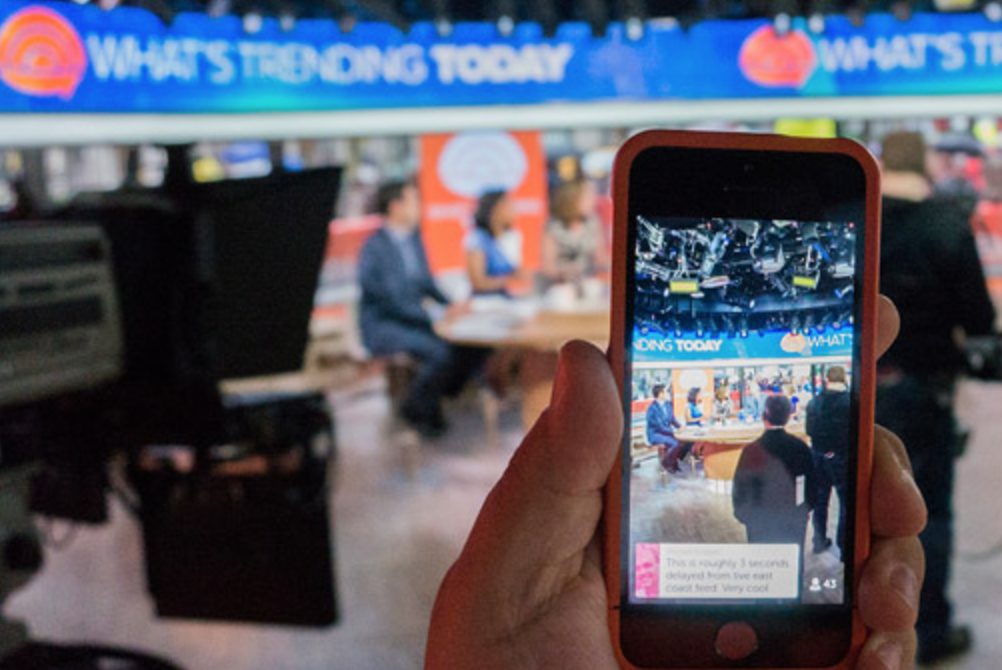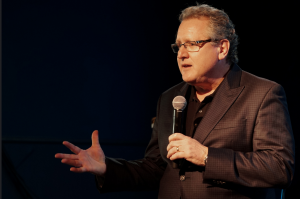
By Mark Schaefer
At the recent Dell-EMC World event, Dell’s global communications director said that a growing number of people who used to identify themselves as journalists or analysts are identifying themselves as “social influencers.” She said that this digital transformation was happening before our eyes, right in the press room. Of the 300 press representatives attending the event, nearly 60 also identified themselves as social influencers.
I wondered about this. There has been a steep decline in journalism jobs, and presumably a rise in “social influence” jobs (although I have not seen any real statistics on this). Are social influencers taking on the role of journalists, or replacing this function in some way? And on the flip side, why would journalists need to become “influencers?”
Let’s explore this idea.
Journalism and social influence
I was trained as journalist through my undergraduate degree but soon was pursuing a corporate communications career … more money! I love journalists and journalism and have always known that there was a line between what it means to be a journalist, and what it means to be a social influencer.
Or is there? As I thought about the Dell executive’s comment, I realized that indeed there is a blurring.
One of my assignments last year was to do a workshop on personal branding with Denmark’s equivalent of the BBC. It was probably the most interesting two hours of the whole year. The strain in the room was palpable. They were journalists. They were taught to stay OUT of the news and now their company was urging them to actively participate in the social web. It was a titanic clash of culture and even ethics.
But being a reporter AND a brand is the expectation today. And perhaps more important, it might be the key to remaining relevant in an emerging world of automated content. After two hours of passionate discussion and angst, the senior reporters and anchors began to understand this new digital world and why they needed to be part of it — some with enthusiasm, some with resignation.
To compete and keep their jobs, they had to be reporters AND influencers in the online community. In fact they need to push the boundaries of news delivery by aggressively staking a claim on emerging social networks.
My friend Avtar Ram Singh of Publicis commented: “A lot of the newer media outlets like Mashable and Vox actually do take a look at the social influence of a specific person before putting them onto their roster or accepting their articles. It’s a traffic play, and one angle of the argument is to address the issue of traffic and pageviews.
“It’s become a qualifying factor for guest posts (in the marketing / blog world), and for contributor articles for larger media guys. How big is the following of a person, because if they have 400,000 followers – that means more traffic for us! It leads us down a potentially dangerous path where people with tons of followers (legit or not) are put at an advantage over people that could potentially be far more knowledgeable about a particular subject.”
Influencers as journalists
In general, there is one reason why companies hire influencers — they can tell a story that attains massive reach. Companies want to borrow an influencer’s large, trusting audience to get a message out through their various traditional and social channels.
An effective influencer needs to be a brand journalist. At various corporate events, I have been hired to interview executives, host podcasts (the new radio!), and moderate discussions that have been live-streamed to thousands of people around the world.
This sounds like something a journalist would do, right?
I once heard Jeff Jarvis, a keen observer about the profession, describe a journalist as “I was there and you were not” … meaning that anybody with a smartphone (or smart drone!) can be a reporter today.
I have actually worked as a journalist and was trained as a journalist so I have the skills and experience to be an effective brand storyteller. The most sought-after influencers bring a high level of journalistic skill to the party. For example, another “influencer” at the Dell event, Natalie Zfat was a reporter for Rolling Stone and Forbes before creating a successful career as a “voice” for brands. She knows how to find the compelling story and tell it in a way that can connect with massive reach.
The implication is, there is indeed a “blurring.” Social influencers need to be effective journalists and to do the job right, need to possess or acquire those skills.
Responsibility
A journalist’s aim is to find the truth and tell the story.
An influencer’s aim is to advocate for a brand and tell the story.
But again there’s a blurring here. Journalists are human. If they take part in the social discussion their biases will show.
An influencer is hired to tell a brand story but if they cross a line and become shills, they lose the trust of their audience. So even an influencer has to exhibit authenticity and honesty.
Last year I got to meet Bethany Mota, a huge YouTube star and one of the most influential people on the web. She told me: “I have a deal with Aeropostale, both as a spokesperson and I am designing my own line of clothes … but I don’t wear their clothes all the time. I wouldn’t normally do that. If I did, my fans would be mad because they know that is not what I would do. That is not authentic.”
In other words, if an influencer doesn’t have integrity, they lose their audience. And if you lose the audience, you lose the business.
“The Millennials feel like they need to be famous to be successful,” said Jim Thornton of Inbound Found. “We end up swamped with wannabe influencers who are getting really good at deception, or disguising self interest. It gets really tough as a consumer of content to discern what’s what, so I’ve gotten very distrustful and skeptical and sort of tune out any promotional content in what I consume.”
Economics of trust
In a world demanding free content, traditional media is struggling to survive.
Perhaps this “blurring” of journalism and social influence also represents an opportunity. The world still needs journalism and great stories. Trained well, perhaps well-funded influencers can also be trusted sources of real news. That’s not necessarily the way it is today with a focus on “fame” instead of “truth.” But the best companies will be smart enough to hire influencers, not to shill a product, but to tell an honest story.
That’s what must happen for both sides to thrive.
What are your thoughts? Leave a comment for me in the comment section below!
Disclosure: Dell is mentioned in this article and I was compensated to attend the Dell World event. However, I was not asked to write this post or compensated by anyone to write this post. The image used to illustrate the article is license-free.
 Mark Schaefer is the chief blogger for this site, executive director of Schaefer Marketing Solutions, and the author of several best-selling digital marketing books. He is an acclaimed keynote speaker, college educator, and business consultant. The Marketing Companion podcast is among the top business podcasts in the world. Contact Mark to have him speak to your company event or conference soon.
Mark Schaefer is the chief blogger for this site, executive director of Schaefer Marketing Solutions, and the author of several best-selling digital marketing books. He is an acclaimed keynote speaker, college educator, and business consultant. The Marketing Companion podcast is among the top business podcasts in the world. Contact Mark to have him speak to your company event or conference soon.


